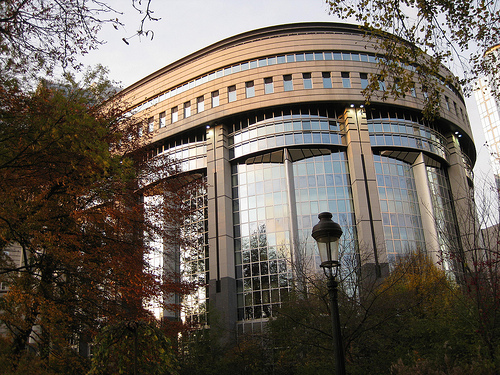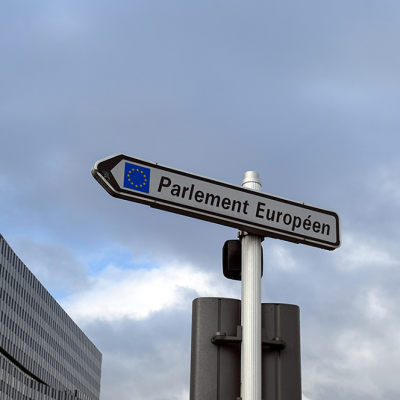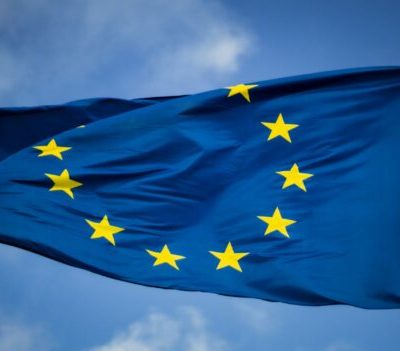European Parliament votes that shaped EU and national politics 2009-2014
VoteWatch Europe and Notre Europe – Jacques Delors Institute have initiated the project “European Parliament votes that shaped EU and national politics 2009-2014”. The objective of this project is to raise public awareness of the political and partisan issues of the European elections of 22-25 May 2014.

VoteWatch Europe and Notre Europe – Jacques Delors Institute have initiated the project “European Parliament votes that shaped EU and national politics 2009-2014”. The objective of this project is to raise public awareness of the political and partisan issues of the European elections of 22-25 May 2014.
With this in mind, they have established a partnership with the think tanks and research institutes from some 20 EU countries in order to analyse the impact of EU policy issues on national policies over the past five years, by adapting these analyses to the people in the countries concerned.
This project focuses in particular on the analysis of a series of 15 key votes identified by all partners (with the possibility of adding 5 additional votes per country) as well as points of analysis specific to the partners involved (publication and event format).
An open conference organised in Brussels on 19 March 2014 was an opportunity to present the initial results of this project, and an overall synthesis has been drafted and circulated by VoteWatch Europe and Notre Europe – Jacques Delors Institute before the 22-25 May 2014.
List of partners of the project led by VoteWatch Europe and Notre Europe – Jacques Delors Institute:
– Austria: Institute of Advanced Studies, Department of Political Science
– Belgium: Egmont–Royal Institute for International Relations
– Bulgaria: Centre for Liberal Strategies
– Cyprus: Cyprus Center for European and International Affairs
– Denmark: Danish Institute for International Studies-DIIS
– Finland: Finnish Institute of International Affairs
– France: Robert Schuman Foundation
– Germany: Stiftung Wissenschaft und Politik/German Institute for International and Security Affairs
– Greece: Diktio – Network for Reform in Greece and Europe
– Ireland: European Movement Ireland
– Italy: Institute of International Affairs & Centre for Studies on Federalism
– Latvia: Centre for Public Policy-PROVIDUS
– Lithuania: Institute of International Relations and Political Sciences
– Luxembourg: Robert Schuman Centre of European Studies and Research
– Netherlands: Netherlands Institute of International Relations Clingendael
– Poland: Institute for Public Affairs
– Romania: European Institute of Romania
– Spain: Barcelona Centre for International Affairs-CIDOB,
– Sweden: Swedish Institute of European Policy Studies-SIEPS
– United Kingdom: Policy Network
National publications:
– Austria: The Vote of the Austrian Delegation in the European Parliament and Why it Matters Little (for an Electoral Connection), by Emmanuel Sigalas (Institute of Advanced Studies)
– Belgium: The Voting Behaviour of Belgian MEPs during 16 Key Votes: What lessons from the 2009-2014 legislature?, par Clémentine d’Oultremont, Laurent Santin, Xavier Vanden Bosch & Stijn Verhelst (Egmont – Institut royal des relations internationales).
– Denmark: Voting behaviour in the European Parliament 2009-2014: Implications for EU and national politics, by Christine Nissen (DIIS – Danish Institute for International Relations).
– Finland: Linking Domestic and European Politics: Finnish MEPs and the Votes that Shaped the 7th European Parliament, by Tuomas Iso-Markku (Finnish Institute of International Affairs).
– France: Des visages sur des clivages : les élections européennes de mai 2014 (Faces on divides: the May 2014 European elections – English executive summary), by Yves Bertoncini (Notre Europe – Jacques Delors Institute) and Thierry Chopin (Robert Schuman Foundation).
– Germany: Strengthened, sidelined, and caught in compromise The 7th European Parliament from a German perspective, by Daniela Kietz / Nicolai von Ondarza (eds.) (Stiftung Wissenschaft und Politik/German Institute for International and Security Affairs).
– Greece: 15 ??f?f???e? t?? ????pa???? ?????ß?????? p?? d?aµ??f?sa? t?? e???pa??? ?a? e????? p???t??? st? d??st?µa 2009-2014 (15 European Parliament votes that shaped European and national politics 2009-2014 – English executive summary), by DIKTIO – Network for Reform in Greece and Europe.
– Italy: Quanto conta il Parlamento europeo per l’Italia? Un’analisi del dibattito parlamentare e pubblico tra il 2009 e il 2014 (How important is the European Parliament for Italy? An analysis of parliamentary debate and public between 2009 and 2014), by Eleonora Poli and Lorenzo Vai,edited by Nicoletta Pirozzi (Istituto Affari Internazionali).
– Latvia: Eiropas Parlamenta balsojumi, kas ir mainijuši Eiropas Savienibu: 2009-2014 (European Parliament votes that have changed the European Union: 2009-2014) by Sabiedriskas politikas centrs PROVIDUS/Centre for Public Policy PROVIDUS.
– Luxembourg: Das Abstimmungsverhalten der Luxemburger EU-Parlamentarier in der Legislaturperiode von 2009 bis 2014 im nationalen und europäischen Kontext (The voting behavior of Luxembourgish MEPs in the 2009-2014 term in the national and European context), by Guido LessingCentre d’études et de recherches européennes Robert Schuman (CERE).
– Netherlands: Voting Behaviour in the Dutch House of Representatives and the European Parliament: Misleading Parallelism, by Judith Hoevenaars, Lotte van Mourik, Adriaan Schout & Jan Marinus Wiersma (Clingendael | Netherlands institute of International Relations).
– Poland: 17 kluczowych glosowan w Parlamencie Europejskim 2009-2014:Wnioski z analizy glosowania polskich poslów (17 key votes in the European Parliament 2009-2014: Consequences of the analysis of Polish MEPs’ voting records), by Melchior Szczepanik & Agnieszka Lada (Instytut Spraw Publicznych/Institute of Public Affairs).
– United Kingdom: British Political Parties in Europe: Reliable, Ambiguous, Reluctant and Dismissive, by Renaud Thillaye (Policy Network).






